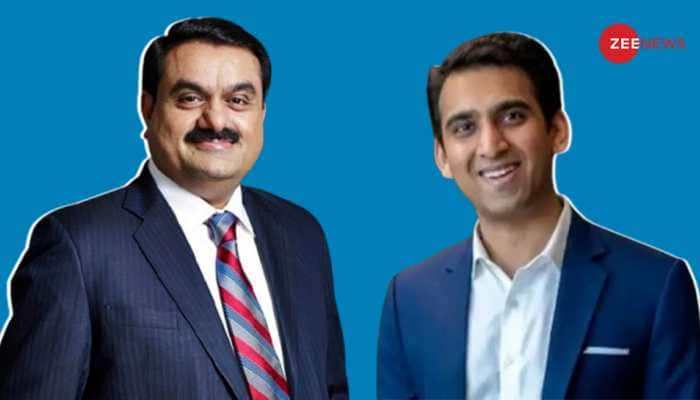Cooperation in fields of education, research key to India-Australia ties: PM Modi
Prime Minister on Monday said that cooperation in the fields of education and research is "one of the most important aspects" of India-Australia ties.
) Pic courtesy: PMO
Pic courtesy: PMO New Delhi: Prime Minister Narendra Modi on Monday said that cooperation in the fields of education and research is "one of the most important aspects" of India-Australia ties as the two countries signed six agreements, including on cooperation in fighting international terrorism and civil aviation security.
"It is no surprise, therefore, that cooperation in the field of education and research is one of the most important aspects of our engagement," he said.
Modi said that the TERI-Deakin Nanobiotechnology Centre (TDNBC) that he jointly inaugurated with Turnbull following the talks was "a classic example of the kind of cutting-edge science and technology cooperation that is happening between our two countries".
TDNBC at TERI`s Green Campus in Gurugram, Haryana, is a pioneer research centre in the field of nanobiotechnology research in India.
The centre offers joint Ph.D. programme by TDNBC, India, and Deakin University (DU), Australia, where selected students are provided fellowships, jointly supervised by both TDNBC and DU, and receive degree from Deakin University.
Modi said that the Australia-India Research Fund of nearly $100 million has focused on collaborative research projects in the areas such as nanotechnology, smart cities, infrastructure, agriculture and disease control.
"Our joint development of bananas fortified with Vitamin A has entered the phase of field trials. Our scientists are also collaborating on developing more nutritious and hardy varieties of pulses," he said.
Laying stress on students exchanges between the two countries, Modi said that while Australia was home to over 60,000 Indian students, an increasing number of Australian students was coming to study in India.
"Responding to the aspirations of India`s youth, building world class institutions in India is one of the objectives of my government," he said, adding that he and Turnbull discussed ways by which Australian universities could connect and contribute to this goal.
On energy cooperation, the indian Prime Minister said that he was happy "that our dialogue and cooperation in other forms of energy including renewable energy is on the up-swing".
"I would also like to thank Prime Minister for Australia`s decision to join the (India-initiated) International Solar Alliance (ISA)," he said.
"And, with the passing of legislation in the Australian Parliament with bipartisan support, Australia is now ready to export uranium to India."
Modi said that both India and Australia agreed on the need for a secure and rule based Indo-Pacific region.
"We are also aware that in this globalised world, challenges like terrorism and cyber security extend beyond the boundaries of our region," he said.
"Indeed, Prime Minister`s (Turnbull`s) understanding and insight into regional and global issues brings a new dimension to our cooperation on matters that concern us both."
Stating that maritime exercises and exchanges between the two countries have been productive, Modi said that "bilateral mechanisms on counter-terrorism and trans-national crimes are functioning well" and expressed pleasure at the signing of the MoU on cooperation in fighting international terrorism and organised crime.
He also called for working closely with with members of the East Asia Summit and the Indian Ocean rim countries to pursue common interests.
On his part, Turnbull appealed to universities and research institutes of both countries to focus on addressing critical problems.
He said Australia was helping India in its water management policy while sharing expertise in the area of renewable energy.
Congratulating Modi for leading the International Solar Alliance (ISA), Turnbull said that Australia would join the alliance soon.
Stating that trade in goods and services between the two sides stood at $20 billion, he said there was scope for increasing this.
"We are working working with India for a quality RCEP (Regional Comprehensive Economic Partnership)," he said.
RCEP is a proposed free trade agreement between the 10 member-states of the Association of Southeast Asian nations (Asean) and the six countries with which Asean has free trade agreements -- Australia, China, India, Japan, South Korea and New Zealand.
The Australian Prime Minister arrived here on Sunday on a four-day state visit to India.
This is Turnbull`s first bilateral visit to India since he assumed office in September 2015.
His predecessor Tony Abbott had visited India in September 2014 and this was followed by Prime Minister Modi`s visit to Australia in November that year.
Stay informed on all the latest news, real-time breaking news updates, and follow all the important headlines in india news and world News on Zee News.
Advertisement
Live Tv
Advertisement







)
)
)
)
)
)
)
)
)
)
